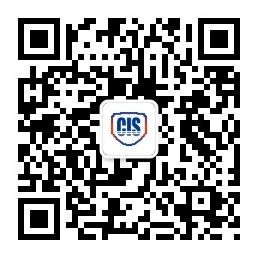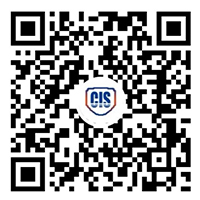
Canadian International School of Shenyang to of
release time:2020-05-12 16:46:40 Hits:
Canadian International School of Shenyang to offer KMK recognized German Language A in 2019
Below is an IBO 2017 statement relating to the recognition of International Baccalaureate School Student graduates with self taught German language IB Courses recognized by German Universities.
Therefore , at CIS Shenyang we hope to have not have self taught courses but professional teacher taught German Courses by Certified German Language Teachers in 2019 school year so our CISS graduating students will definitely qualify and be recognized at a higher level for German Universities.
See the KMK Statement below:
------------------------------
Improved DP recognition in Germany: KMK officially recognizes school supported self-taught language A: literature courses
In March 2017, the German ministry representing the 16 German state education authorities, the Kultusministerkonferenz (KMK), has unanimously agreed to accept the IB’s official request to grant equivalency to the school supported self-taught language A courses to the taught courses in group 1. The IB is delighted to share this success with the IB community, since the improved recognition within Germany will support schools and students, which are looking at Germany as an attractive university destination. It supports schools to consider school supported self-taught courses to cater for diverse student language needs.
Why is this a great improvement?
The KMK agreement on the recognition of the IB Diploma, which has been in place since 1986, did until March 2017 not recognize school supported self-taught language A courses as part of a student’s IB Diploma. This meant in the past that some students did not pursue language development in a best language other than the ones offered by their school as taught courses in order for their diploma to be recognized in Germany. The IB developed the school supported self-taught option in group 1 of the diploma programme based on its commitment to language development including a student’s best language. Given the diverse language profiles of IB students, an IB world school offering the DP cannot always support all best languages of its student community with taught courses, therefore the school supported self-taught course is a vital option for the IB community to honour the IB community’s commitment to language development. The recognition of school supported self-taught courses by an attractive university destination such as Germany strengthens schools who are committed to provide language offers in the DP that meet diverse students’ needs. Therefore, it is a great success that from March 2017 the KMK agreement explicitly states that school supported self-taught courses are recognized as part of the IB Diploma.
Who benefits?
Students and IB world schools in Germany Up to now those students would often not study their language as a school supported self-taught language A as part of their DP package, since their diploma would then not meet the requirements for recognition to attend a German university. Now they can.
German students at IB world schools outside Germany, which do not offer German in group 1 Up to now, students whose best language was German were discouraged to take German as a school supported self-taught course, because it was not recognized by the KMK. At the same time, a German B course was not appropriate for them. Often they may have ended up without German in their DP subject choices. They had to take an additional language proficiency test administered by the universities if they wanted to study in Germany. Now they can take German in group 1 as part of their DP package.
Any student and any IB World school outside Germany, which offers school supported self-taught courses Given that German universities charge no or only minimal tuition fees and Germany is an attractive workplace for graduates, Germany has increasingly become attractive for DP students. The improved recognition now lifts a restriction for students who have diverse language profiles and a best language not taught at the IB world school they attend and may encourage schools to offer more school supported self-taught courses.
The German version of the updated agreements can be found below and on the official KMK website.
Germany KMK Recognition of MYP [157 KB]
Germany KMK Recognition of DP [157 KB]
Agreement on the recognition of the "International Baccalaureate Diploma /Diplôme du Baccalauréat International"
Agreement on the recognitionof the International Baccalaureate Diploma/ Diplôme du Baccalauréat International
(Decision of the Standing Conference of Education Ministers of 10.03.1986 in the version of 02.03.2017)
An International Baccalaureate Diploma/Diplôme du Baccalauréat International gained in accordance with the regulations of the International Baccalaureate Organization/Office du Baccalauréat International is recognized as a qualification for entry to higher education if it has been gained after at least twelve consecutive years' attendance at schools with full-time teaching and if the following conditions are fulfilled:
a) The six examination subjects for the International Baccalaureate Diploma/Diplôme du Baccalauréat International (IB) must include the following subjects as described in the terminology of the IB:
- two languages at Level A or B (at least one of which is a continued foreign language as Language A[1] or Language B HL[2]),
- one scientific subject (biology, chemistry, physics),
- mathematics (mathematical methods[3] or mathematics HL or further mathematics in combination with mathematics HL),
- a social science subject (history, geography, economics, psychology, philosophy, social anthropology, and business and management).
In addition to the subjects listed above, the sixth compulsory subject may be one of the following subjects as described in IB terminology:
- art/design[4], music, theatre arts[5], film, literature and performance, a further modern foreign language, Latin, Classical Greek, general chemistry, applied chemistry, environmental systems[6], computer science, design technology, world religions, and sports, exercise and health science.
b) The three subjects to be examined at higher level for the International Baccalaureate Diploma/Diplôme du Baccalauréat International must include either mathematics or a scientific subject, that is biology, chemistry or physics.
c) All subjects must have been studied continuously, that is for two consecutive years, within the IB Diploma Programme,
d) At least IB grade 4[7] must be awarded for each of the required six subjects.
If IB grade 3 is awarded in one subject only, this may be compensated for if at least IB grade 5 is awarded in another subject at the same or a higher level and if a total of at least 24 points has been achieved.
e) Before embarking on a course of study in Germany, German holders of the IB Diploma, who did not study German as part of the IB programme at a school outside Germany, must provide evidence of an adequate knowledge of German; the detail will be regulated by the legal provisions of individual German states.
2.If the conditions in point 1 are not fulfilled, the passing of an additional examination in accordance with the "Rahmenordnung für den Hochschulzugang mit ausländischen Bildungsnachweisen für die Ausbildung an den Studienkollegs und für die Feststellungsprüfung" [Framework regulation for entry to higher education with foreign educational certification for preparatory courses of study and for the assessment test] (Decision of the Standing Conference of Education Ministers of 15.04.1994 in the applicable version) is required for recognition as a qualification for entry to higher education. Recognition as a subject-specific qualification for entry to higher education is also possible in the form of a successfully completed one-year higher education course in a country whose school leaving certificates give access to higher education in Germany either directly or after a successfully completed one-year course of study.
3. The average grade for an International Baccalaureate Diploma/Diplôme du Baccalauréat International will be calculated in the state in which the certification is evaluated. The procedure for this will be based on the "Vereinbarung über die Festsetzung der Gesamtnote bei ausländischen Hochschulzugangsberechtigungen
The calculation of the average grade (N) will be based on the total points (P) indicated in the International Baccalaureate Diploma/Diplôme du Baccalauréat International and on a maximum of 42 points (Pmax) and a minimum of 24 points (Pmin). Any extra points achieved will also be taken into consideration. Points totals between 42 (Pmax) and 45 (highest possible IB points total plus the maximum achievable 3 extra points) will be equated to the German average grade of 1.0.
The calculation is made using the following formula:
| N | = | 1+3 | Pmax-P


Follow usTEL:8624-67920900 / 8624-66675379 / 8624-66684109 Address: No.301 Hui Shan Road, Hunnan District, Shenyang, 110167, P.R. China
Copyright © 2020 Canadian International School Of Shenyang All Rights Reserved Technical Support:weci
|





